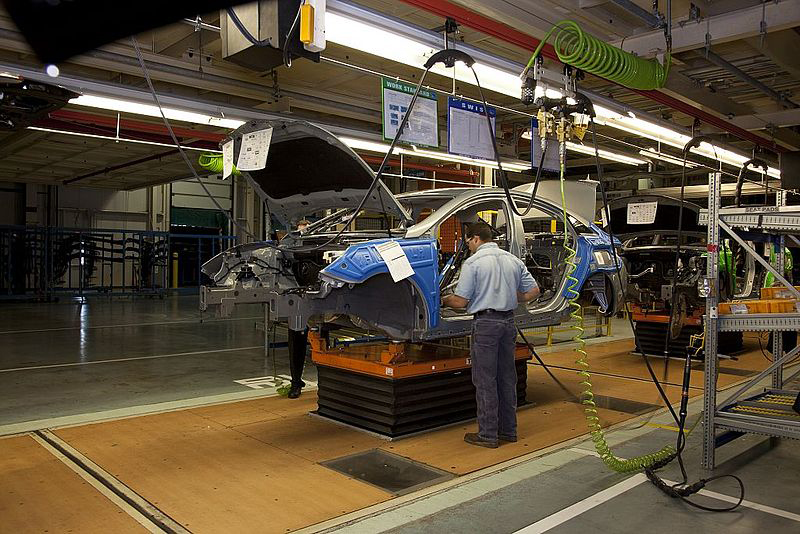| << Chapter < Page | Chapter >> Page > |

While Karl Marx may be one of the best-known thinkers of the nineteenth century, Max Weber is certainly one of the greatest influences in the field of sociology. Like the other social thinkers discussed here, he was concerned with the important changes taking place in Western society with the advent of industrialization. And, like Marx and Durkheim, he feared that industrialization would have negative effects on individuals.
Weber’s primary focus on the structure of society lay in the elements of class, status, and power. Similar to Marx, Weber saw class as economically determined. Society, he believed, was split between owners and laborers. Status, on the other hand, was based on noneconomic factors such as education, kinship, and religion. Both status and class determined an individual’s power, or influence over ideas. Unlike Marx, Weber believed that these ideas formed the base of society.
Weber’s analysis of modern society centered on the concept of rationalization . A rational society is one built around logic and efficiency rather than morality or tradition. To Weber, capitalism is entirely rational. Although this leads to efficiency and merit-based success, it can have negative effects when taken to the extreme. In some modern societies, this is seen when rigid routines and strict design lead to a mechanized work environment and a focus on producing identical products in every location.
Another example of the extreme conditions of rationality can be found in Charlie Chaplin’s classic film Modern Times (1936). Chaplin’s character performs a routine task to the point where he cannot stop his motions even while away from the job. Indeed, today we even have a recognized medical condition that results from such tasks, known as “repetitive stress syndrome.”
Weber was also unlike his predecessors in that he was more interested in how individuals experienced societal divisions than in the divisions themselves. The symbolic interactionism theory, the third of the three most recognized theories of sociology, is based on Weber’s early ideas that emphasize the viewpoint of the individual and how that individual relates to society. For Weber, the culmination of industrialization, rationalization, and the like results in what he referred to as the iron cage , in which the individual is trapped by institutions and bureaucracy. This leads to a sense of “disenchantment of the world,” a phrase Weber used to describe the final condition of humanity. Indeed a dark prediction, but one that has, at least to some degree, been borne out (Gerth and Mills 1918). In a rationalized, modern society, we have supermarkets instead of family-owned stores. We have chain restaurants instead of local eateries. Superstores that offer a multitude of merchandise have replaced independent businesses that focused on one product line, such as hardware, groceries, automotive repair, or clothing. Shopping malls offer retail stores, restaurants, fitness centers, even condominiums. This change may be rational, but is it universally desirable?

In a series of essays in 1904, Max Weber presented the idea of the Protestant work ethic , a new attitude toward work based on the Calvinist principle of predestination. In the sixteenth century, Europe was shaken by the Protestant Revolution. Religious leaders such as Martin Luther and John Calvin argued against the Catholic Church’s belief in salvation through obedience. While Catholic leaders emphasized the importance of religious dogma and performing good deeds as a gateway to Heaven, Protestants believed that inner grace, or faith in God, was enough to achieve salvation.
John Calvin in particular popularized the Christian concept of predestination, the idea that all events—including salvation—have already been decided by God. Because followers were never sure whether they had been chosen to enter Heaven or Hell, they looked for signs in their everyday lives. If a person was hard-working and successful, he was likely to be one of the chosen. If a person was lazy or simply indifferent, he was likely to be one of the damned.
Weber argued that this mentality encouraged people to work hard for personal gain; after all, why should one help the unfortunate if they were already damned? Over time, the Protestant work ethic spread and became the foundation for capitalism.
Émile Durkheim believed that as societies advance, they make the transition from mechanical to organic solidarity. For Karl Marx, society exists in terms of class conflict. With the rise of capitalism, workers become alienated from themselves and others in society. Sociologist Max Weber noted that the rationalization of society can be taken to unhealthy extremes.
Choose two of the three sociologists discussed here (Durkheim, Marx, Weber), and use their arguments to explain a current social event such as the Occupy movement. Do their theories hold up under modern scrutiny?
Think of the ways workers are alienated from the product and process of their jobs. How can these concepts be applied to students and their educations?
One of the most influential pieces of writing in modern history was Karl Marx and Friedrich Engels’ The Communist Manifesto . Visit this site to read the original document that spurred revolutions around the world: (External Link)
Durkheim, Émile. 1960 [1893]. The Division of Labor in Society . Translated by George Simpson. New York: Free Press.
Durkheim, Émile. 1982 [1895]. The Rules of the Sociological Method . Translated by W. D. Halls. New York: Free Press.
Engels, Friedrich. 1892. The Condition of the Working-Class in England in 1844 . London: Swan Sonnenschein&Co.
Geographia. 1998. “The Bedouin Way.” Geograpia.com. Retrieved January 4, 2012 ( (External Link) ).
Gerth, H. H., and C. Wright Mills. 1946. From Max Weber: Essays in Sociology . New York: Oxford University Press.
Marx, Karl and Friedrich Engels. 1998 [1848]. The Communist Manifesto . New York: Penguin Group.

Notification Switch
Would you like to follow the 'Introduction to sociology 2e' conversation and receive update notifications?